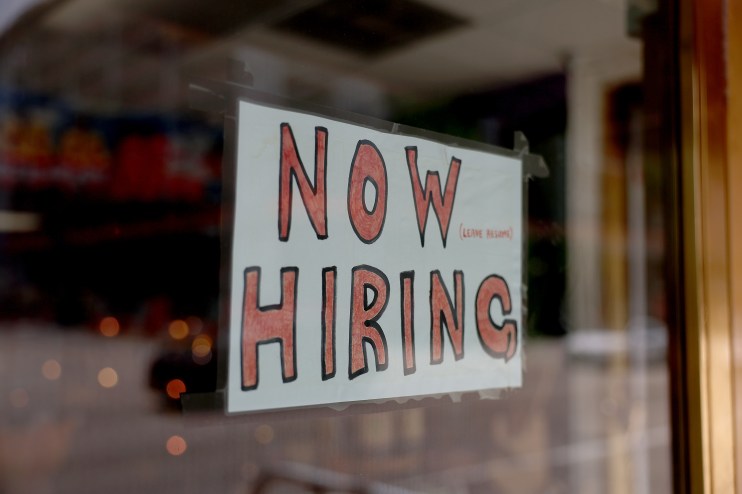Will Jeremy Hunt’s ‘back to work’ make a difference?

Details released yesterday over the government’s Back to Work Plan were designed to tackle the levels of economic inactivity in the UK with a carrot and stick approach. The problem, however, seems to be that there was rather a lot of stick and just a morsel of carrot.
Levels of economic inactivity have grown considerably over the last few years, largely because of significant increases of those with long-term illnesses who are unable to work. But the government is keen to kickstart growth, and part of that is getting people back to work.
While many of the details announced today were welcome – increasing funding for mental health services, uprating benefits in line with September’s inflation rate (6.7 per cent) and raising minimum wage to £11.44 per hour – their punitive delivery showed a party more concerned with rhetoric than results.
“Our message is clear: if you are fit, if you refuse to work, if you are taking taxpayers for a ride – we will take your benefits away,” were the words of work and pensions secretary Mel Stride when delivering the plan last week. Chancellor Jeremy Hunt’s words, that anyone “choosing to coast on the hard work of taxpayers will lose their benefits”, seem equally lacking in the compassion they were claimed to be delivered with.
“The announcement of significant investment in employment support is welcome news, but it risks being drowned out by divisive rhetoric around ‘coasters’ who want to ‘take taxpayers for a ride’. This sort of language just pushes people away – alienating those who could benefit from support, alienating employers, and alienating partners like GPs and voluntary services,” he said.
However, while the rhetoric was notably ramped up, the government’s punitive approach to the benefits system is not all that new, with sanctions – including the withdrawal of parts of benefits payments – already in place. Meanwhile, the threat of completely closing peoples’ Universal Credit claims – by far the harshest measure in the new package – is likely to affect only a very small number of claimants.
Many have argued that the government’s sanctions-led approach has proved ineffective, increasing anxiety and slowing peoples’ progress back to work. Indeed, Tony Wilson, director at the Institute for Employment Studies, said while much of the substance of today’s announcements was welcome, the government risked undermining its message with its inflammatory language,
Meanwhile the government’s most significant measure, reforming the work capability assessment (WCA), is lacking in detail on what exactly this will constitute. The WCA is currently used to assess whether people claiming benefits are fit for work, however the government today said it would reform the “descriptors” used to “better reflect the greater flexibility… now available in the world of work”. What exactly this means is unclear, but the government’s costing projections, which estimate this measure will raise £1.265bn by 2029, suggest they expect a significant number of people to qualify as fit to work under its new assessment criteria.
Reports earlier this week suggested that would mean an emphasis on remote working, but this emphasis was something notably lacking in today’s announcements, presumably because the problems of such a policy are clear. Remote job postings have decreased 28 per cent since August 2021, according to figures from Linkedin, while only 1 in 10 low-paid jobs – which those who have long been out of work are most likely to qualify for – are remote.
The central thesis of the government’s rhetoric today – that work should be rewarded – also relies far more on the removal of punishment than the granting of benefits. The argument that those with mobility problems will now be more incentivised to work, for example, works only because many from that group will now see their entitlement to benefits like the limited capability for work-related activity payment, which equated to an extra £390.06 a month, taken away.
